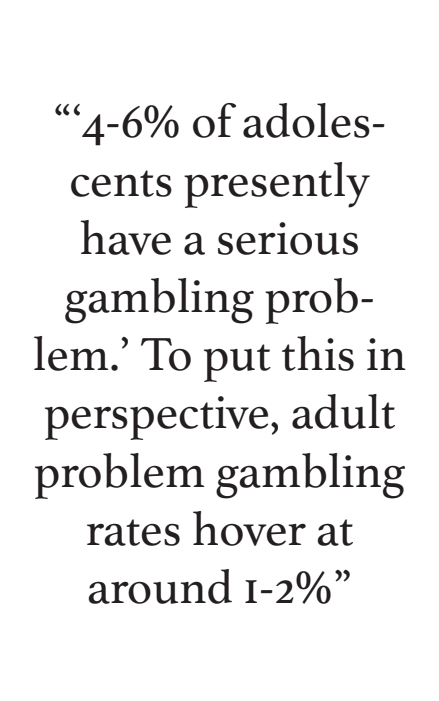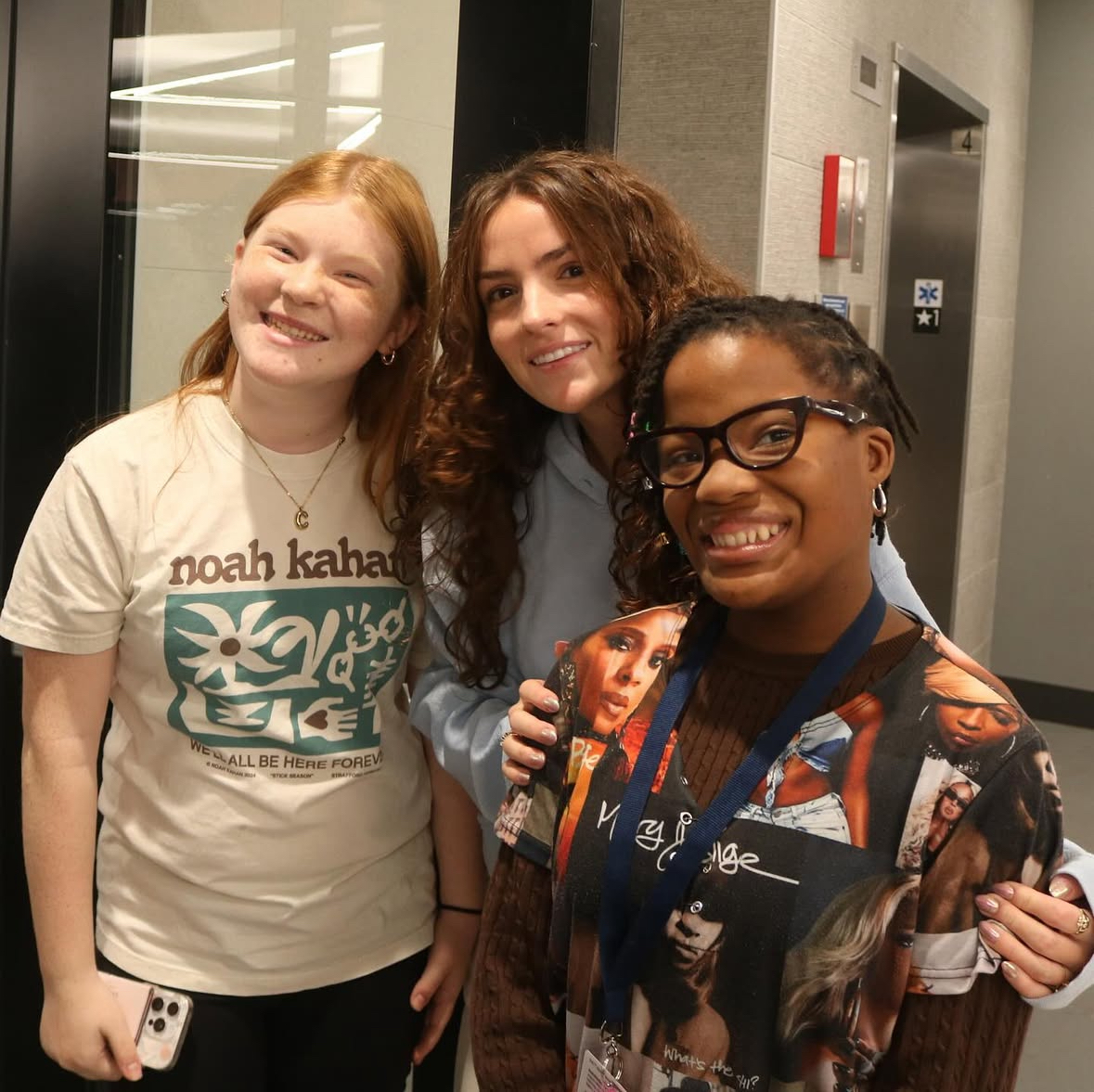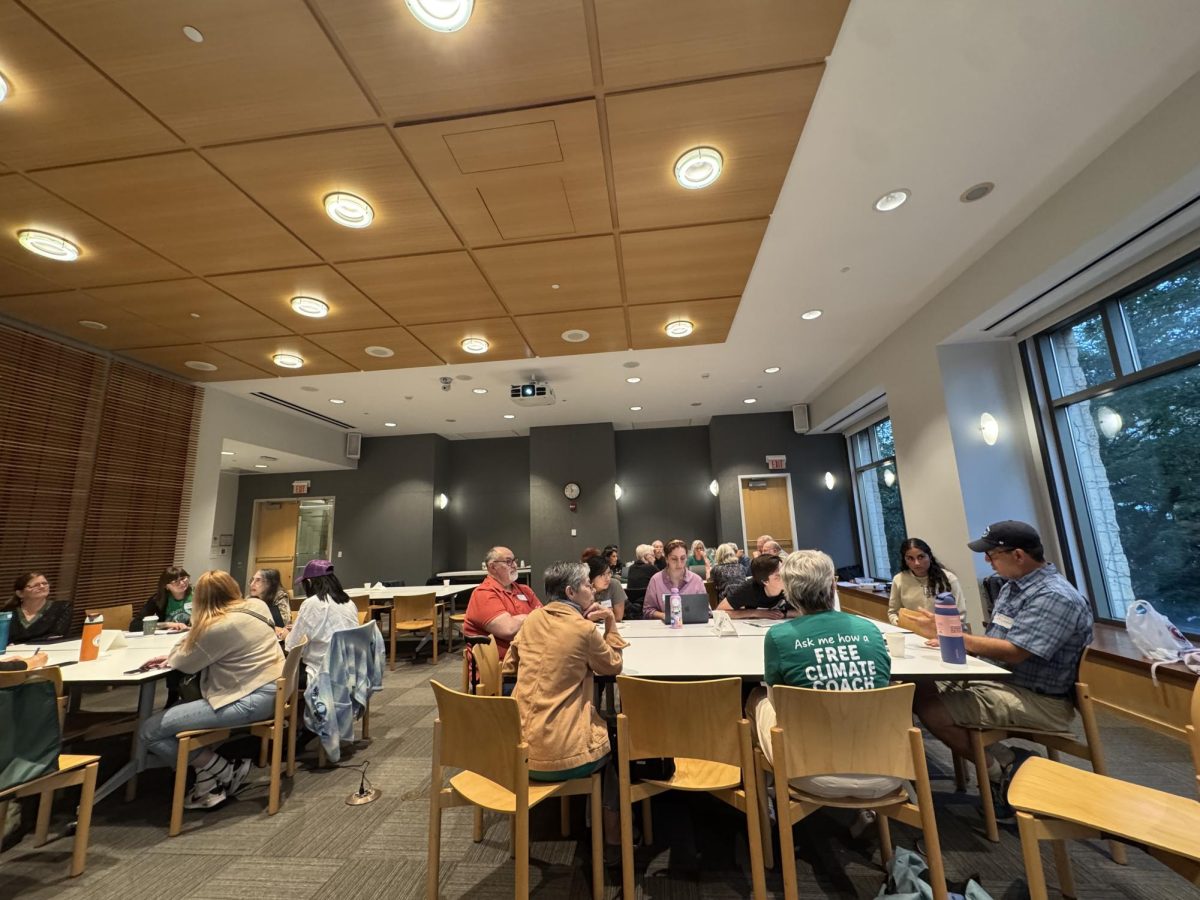Late summer and early fall are not just defined by the pleasant weather but also the start of many of the world’s most popular sports seasons. Currently, fans are enjoying the NFL season, MLB playoffs and lots of college football. For many fans, watching their favorite team or following a player whose performance makes or breaks their fantasy matchup is enough thrill and pressure. For others, it’s not about their favorite teams or players, it’s about their bets placed and money on the line.
New problems are emerging in the gambling sphere. The digitalization of casinos and sports books has increased the accessibility of betting and gambling, and gambling is on the rise for teens both nationally and in our own Oak Park and River Forest High School community. In a survey of 15 OPRF students, a quarter of respondents said they gamble daily.
Today, underage gambling and betting is not seen as a high-priority issue. There is little funding for its research and not many organizations are dedicated to activism on the topic. That doesn’t change how widespread the issue is though. Cait Huble, the director of communications for the National Council on Problem Gambling (NCPG), said in a written statement, “Approximately 60% of high-school-aged adolescents report having gambled for money during the past year,” and, more concerningly, between 10-14% of those adolescents “are at risk of developing a gambling problem.”
The California Council on Problem Gambling stated that youth gamblers are far more likely to become problem gamblers later in life. The digitalization of casinos and sports books has created a real issue in youth problem gambling rates. Huble stated that “4-6% of adolescents presently have a serious gambling problem.” To put this in perspective, adult problem gambling rates hover at around 1-2%.
This epidemic can be seen up close here at OPRF. While no concrete stats on the topic exist, students reported participating in gambling. Senior Joaquin Pecoraro said on the subject of his personal relationship with gambling that he was first exposed to sports betting about two years ago via YouTube ads. “If you see your favorite person on the internet doing it, you’re going to want to do it,” he said.
Pecoraro said gambling apps including Yotta and Fliff were his personal favorites and allowed him to skirt past age verification requirements. He said through constantly retrying, almost anybody could get around age verification measures.
Another senior, Joe Elza, said Fliff and Yotta actually give users free betting credits just for continuously playing. Because they are digital credits and not real money, the apps don’t require any ID checks until users win big enough to reach the cashout threshold. Most people don’t reach this threshold, which makes investing real money a more appealing offer.
Legally these apps are not sports betting or gambling; they are essentially simulators. On the surface, they seem safer than real gambling because no real money is at stake, but in reality, they are dangerously predatory and can introduce youth to gambling even earlier.
According to the NCPG, many young people report their first experience with gambling between 9 and 11 years old, but the age of digital socialization is also trending younger. So how can this epidemic be curbed? The NCPG says it’s up to the government to pass stricter age verification laws. Parents may want to begin addressing younger children on the dangers of gambling.







